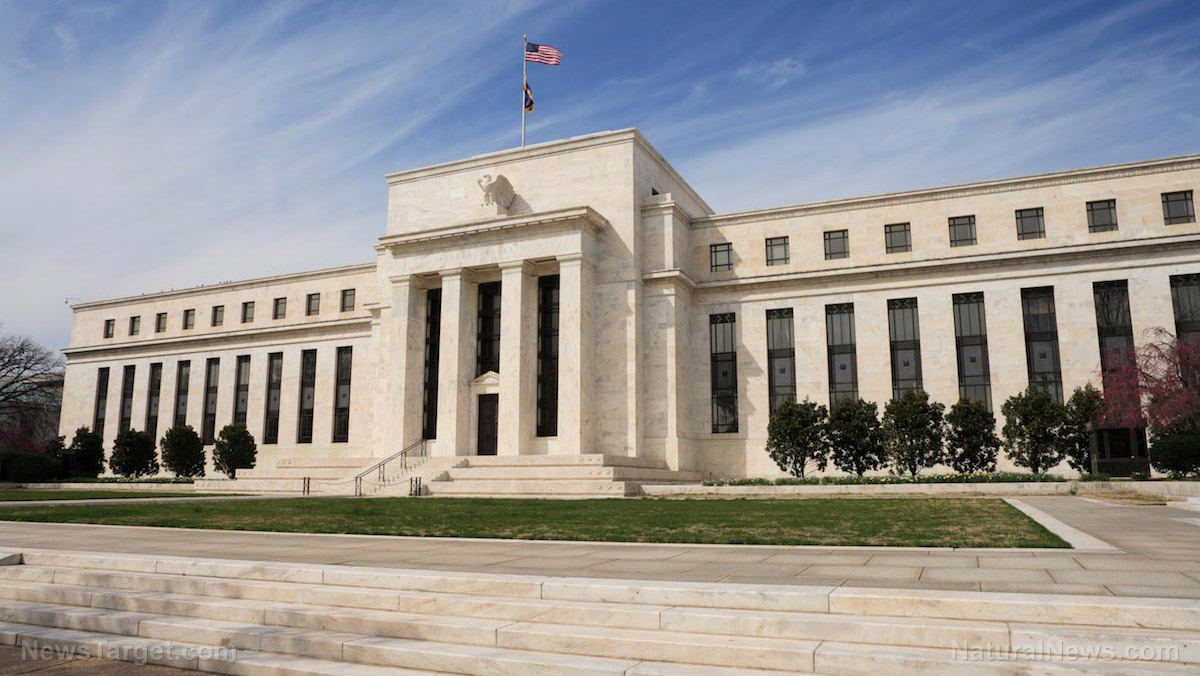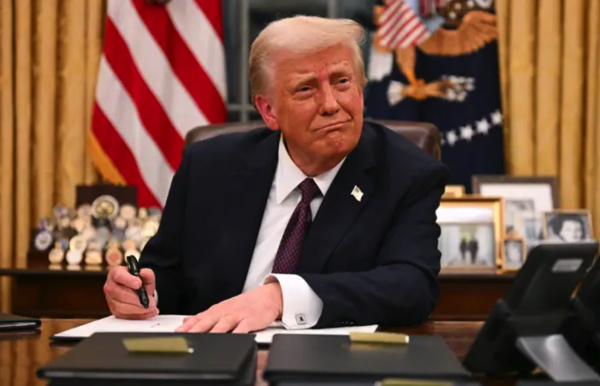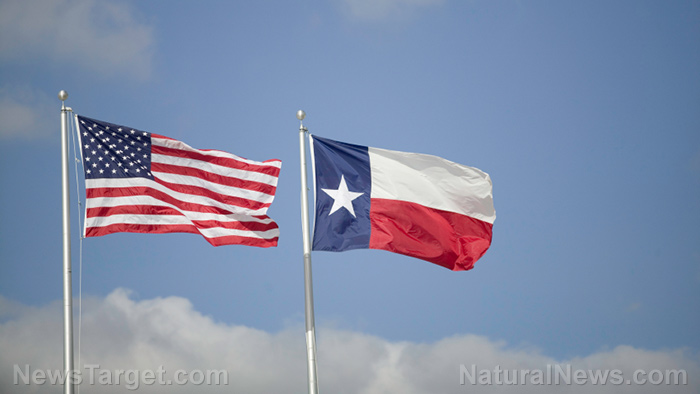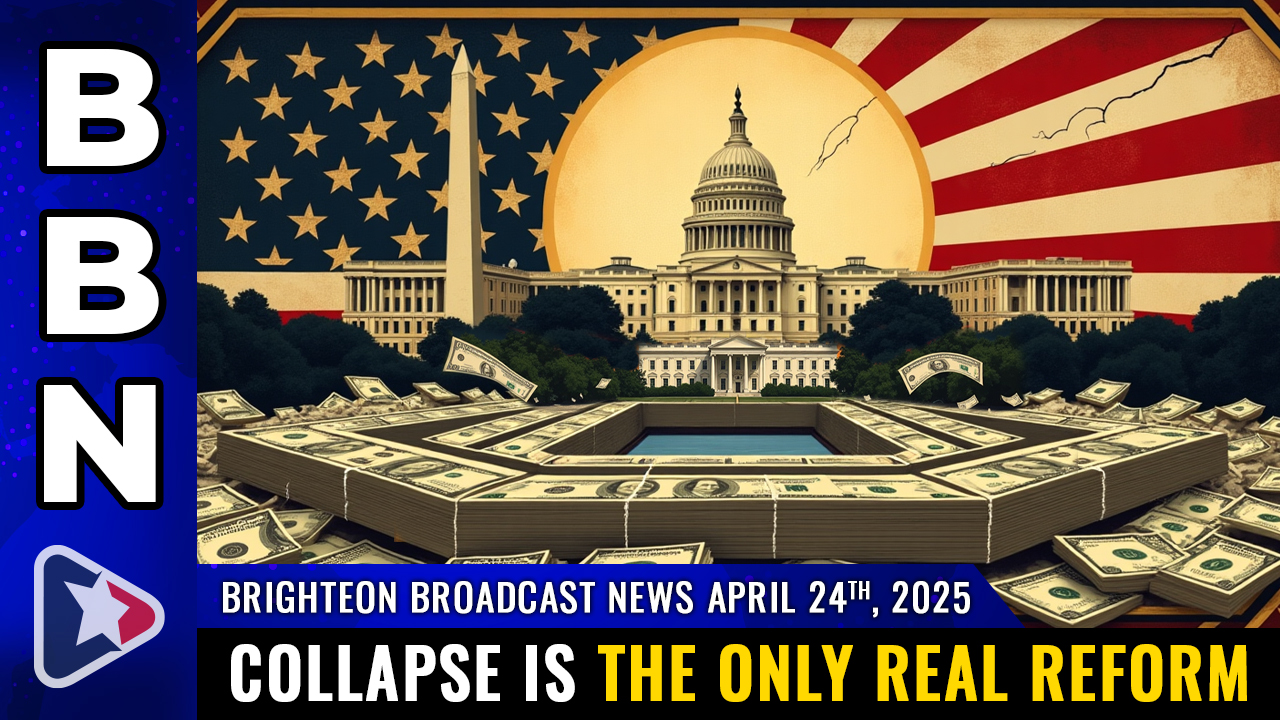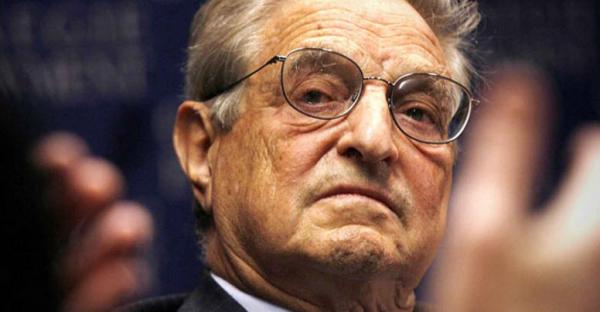Boeing’s China dilemma strikes at heart of trade and security crises
04/25/2025 / By Willow Tohi
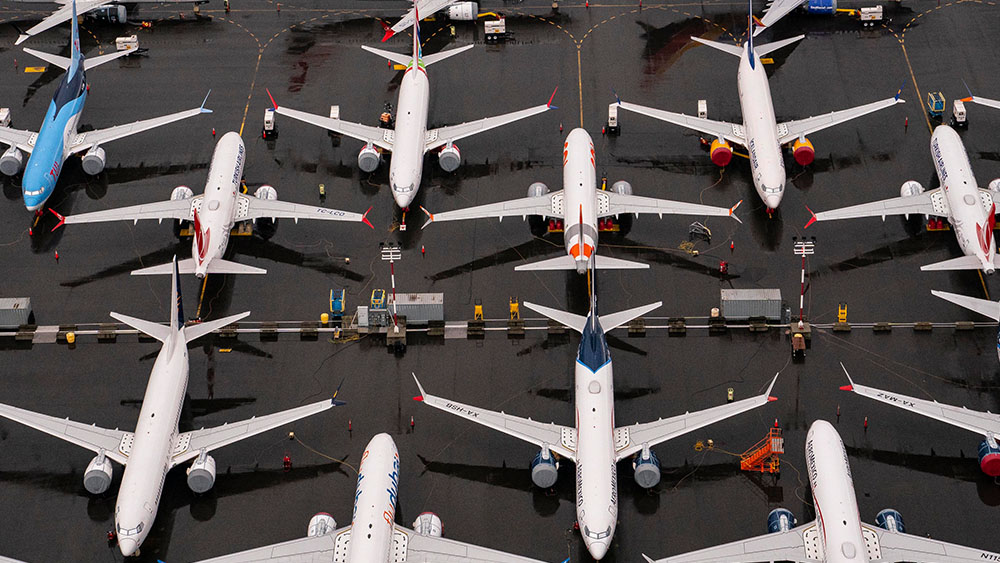
- China halted aircraft deliveries due to U.S.-China trade tariffs, disrupting $200B in backlogged orders. President Trump also canceled a $4B Air Force One contract over alleged overcharging, compounding financial pressures.
- Boeing announced 17,000 layoffs (10% of its workforce) amid financial strain, while facing FAA and SEC investigations into safety protocols and governance issues, eroding trust.
- Boeing seeks to “remarket” jets (e.g., diverting 737 Max planes to Air India), but global tariff impacts and supply chain instability threaten production ramp-ups for the 737 Max and 787 Dreamliner.
- Potential Boeing operations in China raise alarms about technology leaks and subsidizing a strategic rival, as geopolitical tensions clash with commercial survival.
- Boeing’s crisis reflects tensions between economic pragmatism (reliance on China’s market) and national security, forcing hard choices about trade, manufacturing and defense priorities.
Boeing, the American aerospace giant, faces a compounding crisis as China halts aircraft deliveries amid escalating trade tariffs, prompting layoffs of 17,000 employees and raising alarms over national security risks tied to potential operational moves to China. Boeing CEO Kelly Ortberg confirmed Chinese airlines have “stopped taking delivery of aircraft due to the tariff environment,” while President Donald Trump recently canceled a $4 billion Air Force One contract with the company following accusations of overcharging. The overlapping challenges—economic, geopolitical and operational—highlight tensions between corporate survival and national priorities as Boeing navigates a precarious path to recovery.
China delays force Boeing to redirect $200B order backlog, threaten U.S. manufacturing
The suspension of deliveries to China jeopardizes a critical revenue stream for Boeing, which derives 10% of its commercial aircraft backlog from Chinese customers. Ortberg told CNBC’s “Squawk on the Street” that Boeing aims to “remarket” jets initially marked for Chinese airlines, including diverting 737 Max planes to Indian carriers like Air India. However, concerns linger over whether new buyers can absorb the excess inventory as Boeing ramps up production of 737 Max and 787 Dreamliner models.
The tariff fallout stems from Trump’s escalation of U.S.-China trade wars, including a 145% tariff on Chinese imports announced earlier this month. Though Trump recently softened rhetoric by calling the tariffs “very high,” Boeing’s situation underscores the economic collateral damage. The planemaker’s CFO, Brian West, warned that broader tariff impacts could strain operations further, as Boeing’s supply chain and manufacturing hubs remain deeply entangled with both U.S. and global partners.
Layoffs and regulatory scrutiny as Boeing seeks turnaround amid mounting trust issues
Boeing’s announcement of 10,000 layoffs, reducing its workforce by roughly 10%, marks a stark admission of financial fragility. The cuts come amid persistent regulatory and legal challenges, including a stalled Air Force One contract after Trump canceled the deal amid accusations of corporate overcharging. The president’s decision, coupled with ongoing FAA probes into Boeing’s Dreamliner inspection protocols and an SEC investigation into safety disclosures, reflects eroding confidence in the company’s governance.
Goldman Sachs analysts highlighted modest earnings improvements in Boeing’s first quarter, citing narrowed losses and stronger commercial margins, but cautioned that production ramp-ups and supply chain stability remain risks. Yet Boeing’s operational recovery faces hurdles: unresolved disputes over its 25-hour cockpit voice recorder—a design China’s civil aviation authority is reviewing—threaten to extend delays in deliveries.
National security risks rise as Boeing explores Chinese expansion
The potential relocation of Boeing operations to China has sparked warnings about national security, as Beijing and Washington ratchet up economic competition. In 2019, two fatal crashes grounded the 737 Max worldwide, exposing vulnerabilities in Boeing’s manufacturing and compliance protocols. Yet the company’s fiscal desperation now intersects with geopolitical stakes: Chinese state media recently reported that Boeing and local executives have discussed further market entries, raising fears that U.S. technology and supply chains could be exposed.
“It’s not just about economics,” said a former Pentagon official tracking aerospace trends. “Boeing’s moves into China could divide U.S. manufacturing jobs and technology resources while subsidizing a rival.” The company’s financial reliance on Chinese buyers—including a legacy of post-grounding inventory piling up in Washington—underscores the tension between commercial demands and long-term U.S. interests.
Boeing’s crossroads reflects U.S. strategic crossroads
Boeing’s crisis intertwines with broader national dilemmas: How far will American businesses go to survive in a fractured global economy? Can U.S. leadership balance fiscal pragmatism with security imperatives? Ortberg asserts the company will “not let this derail recovery,” but the path ahead demands choices that impact trade ties, national defense and public trust. With China’s aviation market key to Boeing’s survival and Washington’s tariffs reshaping the equation, the stakes extend far beyond the aerospace industry. For now, the skies above Boeing are anything but clear.
Sources include:
Submit a correction >>
Tagged Under:
big government, Boeing, Bubble, China, debt bomb, dollar demise, national security, pensions, risk, tariffs, trade wars, Trump
This article may contain statements that reflect the opinion of the author
RECENT NEWS & ARTICLES
COPYRIGHT © 2018 MONEYSUPPLY.NEWS
All content posted on this site is protected under Free Speech. MoneySupply.news is not responsible for content written by contributing authors. The information on this site is provided for educational and entertainment purposes only. It is not intended as a substitute for professional advice of any kind. MoneySupply.news assumes no responsibility for the use or misuse of this material. All trademarks, registered trademarks and service marks mentioned on this site are the property of their respective owners.

